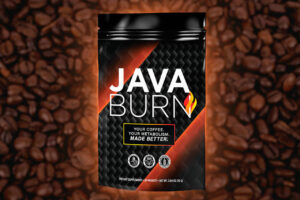Metabolism:The Ulitmate Guide: Factors Affecting Metabolism: Tips for Boosting Your Metabolism: What to eat for a faster Metabolism: Other factors that boost metabolism: Conclusion

Metabolism:The Ulitmate Guide is a biological process that occurs in all living organisms. It involves the conversion of food into energy for cellular processes and maintaining essential bodily functions. Understanding your metabolism can help you make informed decisions about your diet, exercise, and overall health.
What is Metabolism?
Metabolism encompasses all the biochemical reactions happening in our body to break down nutrients and convert them into energy. These processes are essential for growth, repair, and reproduction.
Our metabolic rate refers to the number of calories our body burns at rest to carry out basic functions like breathing, circulating blood, and maintaining optimal body temperature. It is influenced by factors such as age, gender, body size, and genetics.
How Does Metabolism Work?
Metabolism involves two main processes: catabolism and anabolism. Catabolism breaks down larger molecules into smaller ones, releasing energy in the process. Anabolism, on the other hand, uses that energy to build new molecules necessary for cellular functions.
Metabolism also relies on enzymes, which are proteins that act as catalysts to speed up biochemical reactions. These enzymes are responsible for breaking down food into usable energy and building new molecules for growth and repair.
Factors Affecting Metabolism

Metabolism:The Ulitmate Guide believes several factors can influence your metabolism, including:
- Age: As we age, our metabolic rate tends to decrease due to a loss of muscle mass.
- Gender: Men tend to have a higher metabolic rate than women because they have more muscle mass and less body fat.
- Body composition: Muscles require more energy to function compared to fat, so people with higher muscle mass tend to have a higher metabolic rate.
- Genetics: Some genetic factors can influence your metabolism, such as hormonal imbalances or inherited disorders.
- Hormones: Hormones play a crucial role in regulating our metabolism. Imbalances in hormones like insulin, thyroid hormone, and cortisol can affect metabolic rate.
- Physical activity: Regular exercise can increase your metabolism by building muscle mass and burning calories.
- Diet: Different foods have different effects on our metabolism. Foods high in protein require more energy to digest compared to those high in fat or carbohydrates.
Tips for Boosting Your Metabolism

Although our metabolism is largely influenced by factors outside of our control, there are some ways to boost it and maintain a healthy metabolic rate. Here are some tips The:
- Stay hydrated: Drinking enough water keeps our cells functioning properly and can help with digestion.
- Eat regularly: Skipping meals or severely restricting calorie intake can slow down your metabolism as your body goes into “starvation mode.” Eating regular, balanced meals can help keep your metabolism working efficiently.
- Build muscle: As mentioned earlier, muscle mass requires more energy to function compared to fat. Incorporating strength training into your exercise routine can help increase muscle mass and boost your metabolism.
- Get enough sleep: Lack of sleep can disrupt hormonal balance and affect your metabolic rate. Aim for 7-9 hours of sleep each night to give your body the rest it needs.
- Eat enough protein: Protein not only helps build muscle, but it also has a higher thermic effect compared to other macronutrients. This means that our body uses more energy to digest and process protein, thus boosting metabolism.
Metabolism:The Ulitmate Guide shows that by incorporating these tips into your daily routine, you can help maintain a healthy metabolism and support overall health and well-being. Remember, small changes can make a big difference in the long run. So start taking care of your body now and reap the benefits later!
Check these related articles out:
What to eat for a faster Metabolism

There are certain foods and nutrients that can help boost your metabolism. These include:
- Protein: Eating protein-rich foods such as lean meats, fish, eggs, and legumes can increase metabolism due to the thermic effect of food (TEF). TEF is the energy required by our body to digest and absorb nutrients. Protein has a higher TEF compared to carbohydrates and fats, meaning you burn more calories digesting protein than other macronutrients.
- Fiber: High-fiber foods like fruits, vegetables, whole grains, and legumes can also help increase metabolism. Similar to protein, fiber has a high TEF and takes longer to digest, keeping you fuller for longer periods of time.
- Spicy Foods: Studies have shown that spicy foods, specifically those containing capsaicin, can temporarily increase metabolism. Capsaicin is a compound found in chili peppers that can boost the body’s release of stress hormones and increase energy expenditure.
- Green Tea: Drinking green tea has been linked to a faster metabolism due to its high antioxidant content and caffeine. Antioxidants help protect our cells from damage, while caffeine can increase energy expenditure and fat oxidation.
- Water: Staying hydrated is essential for a fast metabolism. Drinking enough water helps our bodies efficiently break down and use nutrients, including those that contribute to metabolism.
Check out this related article: #6 Best Foods To Boost Your metabolism
Other factors that boost metabolism

Metabolism:The Ulitmate Guide believes you can boost your metabolism with high-intensity interval training (HIIT). This workout involves intense activity followed by rest periods. Studies show HIIT increases metabolism and burns more calories throughout the day.
Managing stress is crucial for maintaining a healthy metabolism. When we are stressed, our body releases cortisol, a hormone that can slow down metabolism and increase fat storage. Find ways to reduce stress in your daily life such as practicing mindfulness, taking breaks throughout the day, and getting enough sleep.
Lastly, incorporating resistance training into your exercise routine can also help boost metabolism. Building muscle mass through strength training increases the number of calories burned at rest, thus leading to a faster metabolism. Plus, having more muscle can also improve overall body composition and physical function.
Conclusion
Maintaining a healthy metabolism is crucial for overall well-being. Implement these tips into your daily routine: proper diet, exercise, hydration, stress management, and strength training. A healthy metabolism helps maintain weight and benefits physical and mental health. Start today!
Stay active, hydrated, and manage stress levels to maintain a strong metabolism. Remember that everyone’s body is unique, so listen to your body and find what works best for you.
By making these small changes and staying consistent, you can boost your metabolism and improve your overall health in the long run. So don’t wait any longer, start incorporating these tips into your daily routine and feel the difference it makes in your life!
Check out this related article: Weight Loss:The Ultimate Guide
Check out this related website: The Ultimate Guide To Metabolic Health

